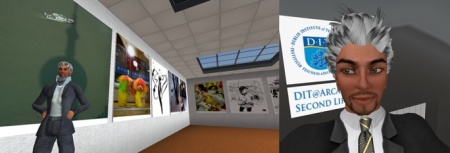CLASS SUMMARY:
After hearing Ham and Elfay (who joined the class again) talk about their projects last week we had a discussion around content creation this week. To provide a context I referred to Dr Axel Bruns’ premise of the ‘produser’ and asked the group to reflect on its meaning to us. Once you start creating content, such as in the blogs for this module, do you think you become produsers? and if so, what does that mean? Other questions to think about are: what constitutes content? how is it generated? Bruns posits that be writing blogs and engaging in online debates, for example, we add a new dimension to being consumers solely. We move towards sometimes producing something of potential value.
Two issues affected the discussion. The first was the ongoing issue of sound/voice: some participants can’t activate voice at all and therefore cannot hear what is being said, while others are finding their sound breaks up making it hard work to concentrate. However, everyone is getting adept at using text so the issue is becoming less important. The second is that many participants are not reading the material provided in advance which is meant to inform the discussion. This results in a discussion based on uninformed opinion and so limits the potential for engaging with the topic in a meaningful way.
I had intended the discussion to touch on these issues:
- Value – does your content have any value? How can you determine value? How can you quantify value?
- Sharing your content – making it available, finding an audience, generating income.
- Use and protection of online content – copyright and Intellectual Property (IP) issues.
We introduced the Story Telling Project in the second part of the class and discussed the brief that was circulated to those attending. The brief is given in full on page 6 Module Assessment at the right hand side of this blog.
ACTIVITIES FOR NEXT WEEK:
1. Start work on the Story Telling project.
2. Write in your blog about the setting up a team project and how you contribute.
3. READING: Building Online Communities on O’Reilly Media website gives an insight into how to develop and build online communities. There strategies discussed will help to build the team spirit needed to complete the Story Telling project.



